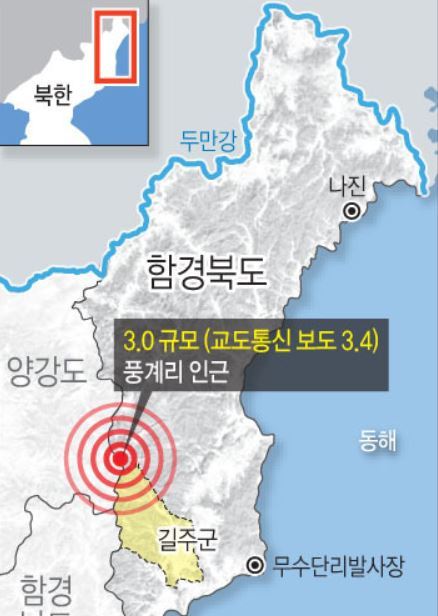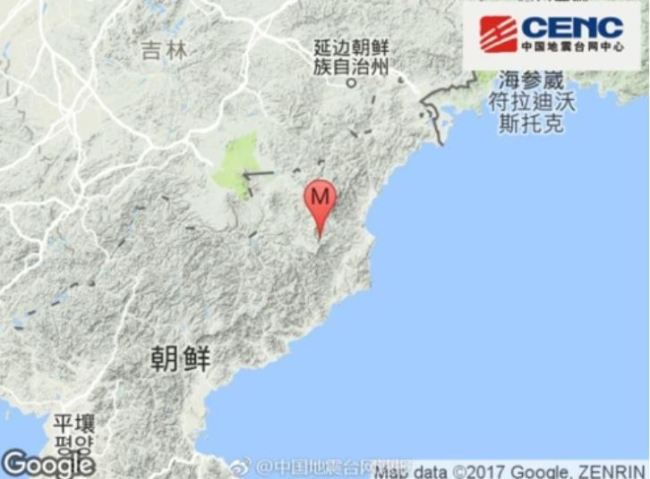Weather service takes flak for being slow to confirm NK nuke test aftershocks
By YonhapPublished : Sept. 24, 2017 - 15:51
South Korea's weather service on Sunday received flak for taking nine hours to confirm the two aftershocks that followed North Korea's latest underground nuclear test.
Critics here said the Korea Meteorological Administration took too much time to announce there were actually two earthquakes Saturday, which were caused by North Korea's sixth and most powerful nuclear detonation to date on Sept. 3. Pyongyang claimed it detonated a full-fledged hydrogen bomb earlier in the month and said it can be placed on a long-range missile.
The KMA was also forced to change the epicenter of the magnitude 2.6 and 3.2 aftershocks, by some 20 kilometers, despite Chinese authorities releasing the precise location hours earlier.
Critics here said the Korea Meteorological Administration took too much time to announce there were actually two earthquakes Saturday, which were caused by North Korea's sixth and most powerful nuclear detonation to date on Sept. 3. Pyongyang claimed it detonated a full-fledged hydrogen bomb earlier in the month and said it can be placed on a long-range missile.
The KMA was also forced to change the epicenter of the magnitude 2.6 and 3.2 aftershocks, by some 20 kilometers, despite Chinese authorities releasing the precise location hours earlier.

The weather service initially said it detected only one aftershock over the weekend, although the Comprehensive Nuclear-Test-Ban Treaty Organization under the United Nations immediately reported two tremors in the vicinity of the North Korea nuclear test site in Punggye-ri, North Hamgyong Province.
The failure to quickly provide data comes after it was slow to announce small quakes triggered by the caving in of the test site after the latest nuclear test. It was not until Sept. 5 that the KMA reported small tremors at the Punggye-ri site. At that time, the China Earthquake Networks Center reported the quake almost in real time.
This tardiness coupled with the KMA not releasing information about the quake it received from the state-run Korea Institute of Geoscience & Mineral Resources caused the country's prime minister to issue a stern warning to both agencies.

Related to the criticism, the KMA claimed it took time to make the announcement because it did not get relevant data from CENC. The two agencies exchange information on earthquake data under a pre-set arrangement.
On the positive side, the local weather service was clear early on that the latest aftershocks were not caused by an underground explosion, while CENC and some foreign media reports initially raised the possibility of another explosive test by Pyongyang. (Yonhap)











![[Kim So-hyun] The quiet taxi driver from Paris](http://res.heraldm.com/phpwas/restmb_idxmake.php?idx=644&simg=/content/image/2024/04/25/20240425050891_0.jpg&u=)







